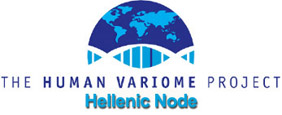
 BACKGROUND
BACKGROUND
The Hellenic National/Ethnic mutation database (NEMDB) has been developed since mid 2004 and described in early 2005. So far, The Hellenic NEMDB contains information on 14 different inherited disorders studied for the Hellenic population, which include a total of over 4,000 chromosomes and 270 different mutant alleles, depicting the vast genetic heterogeneity identified so far in the Hellenic population. Disorders include congenital adrenal hyperplasia (CYP21 deficiency), -thalassemia, -thalassemia, -thalassemia, cystic fibrosis, GJB2 non-syndromic sensorineural deafness, familial Mediterranean fever, G6PD deficiency, hereditary hemochromatosis, HPFH, familial hypercholesterolemia, phenylketonuria, and cystinuria. Also, we have documented a number of pharmacogenomic marker allele frequencies for the Hellenic population for the TPMT and UGT1A1 genes.
Hellenic NEMDB data have been acquired and extracted from multiple sources, such as the literature, meeting reports, mutation databases and, most importantly, direct submissions from bioscientists involved in this initiative and the field of provision of genetic services in Greece. Emphasis was given so that the mutation frequency data are derived from individuals and patients of Hellenic origin only and not from minority groups, such as Turks, Pomaks and Gypsies, principally located in Thrace (N.E. Greece).
Finally, based on the existing data we have completed 2 projects to identify the frequency of -thalassemia mutations in Central and Western Greece, the data have been analyzed comparatively to previously available results and the papers published already in peer-reviewed journals (Samara et al., 2007, Papachatzopoulou et al., 2010).
METHODOLOGY
Our data collection members will continue with data collection for the literature, while they will contact other laboratories to ensure that more data will be stored in the Hellenic database. In addition, we plan to include a separate module to document cytogenetic alterations data from the Hellenic population. Also, we are currently in the process of determining the frequencies of over 2000 pharmacogenomic markers for the Hellenic population using the Affymetrix DMET Plus platform.
Our future plan also involves outreaching other laboratories to motivate them to contribute their data, by means of participation to scientific meetings and by direct invitation to group leaders.

